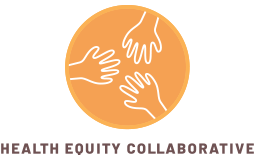27 Apr How will Congressional attempts to lower drug prices impact underserved communities?
April 27, 2021
Last week, The House Energy and Commerce, Ways and Means, and Education and Labor committees reintroduced H.R. 3, the “Elijah E. Cummings Lower Drug Costs Now Act.” While we commend Congressional efforts to lower the cost of drugs, we should have the conversation – at what “cost” to America’s minority patients and those with disabilities and chronic conditions?
The legislation includes a proposed potential prescription drug cost-saving measure that warrants some discussion – foreign reference pricing. As written, H.R. 3 would restrict the cost the U.S. government would pay for certain prescription drugs by tying Medicare reimbursements to prices paid for the same medications in a select group of six other developed nations — many of which have lower quality government-run health systems that set artificially low prices for medicines. Essentially, this allows the U.S. government to rely on arbitrary value judgments made by other foreign governments to set prices here. It’s worth recognizing, these countries selected for the proposed pricing model have significantly smaller underserved and underrepresented communities than that of the United States.
Additionally, in these “reference” countries, foreign government officials make coverage and payment decisions based on inherently flawed cost-benefit analyses, known as “quality-adjusted life-year” (QALY’s). QALY’s are an economic evaluation to measure disease burden, including both the quality and the quantity of life lived, which systematically devalues disadvantaged populations, particularly minorities and patients who are sick or disabled. Using this metric, governments and insurers may determine a given drug isn’t worth paying for based on the long-term health benefits of the patient. Opening the door to reference pricing would effectively endorse the use of discriminatory cost-effectiveness standards in the United States. Under H.R. 3, vulnerable patients would indirectly be subjected to biased QALY assessments.
Given that the U.S. is currently the world leader in medical innovation, a rush to legislate lower prices shouldn’t come before a dialogue with community leaders whose constituents have the most to lose from sweeping legislation. To garner the support of the diverse patient community, lawmakers must address critical unanswered questions surrounding H.R. 3.
- Would importing healthcare models from largely homogenous countries with significantly smaller minority community populations hurt or help our communities?
- Could this legislation diminish the access and availability of medicines for our underserved communities here in the U.S.?
- Will this legislation’s reliance on countries that utilize QALY-based analyses inadvertently promote structural discrimination?
- Can Congress guarantee that this legislation will not undermine high-risk R&D efforts to cure rare diseases disproportionately faced by minority patients?
- With Americans facing a devastating health crisis, is now the right time to reduce government payments for care?
As stated in the recent open letter signed by coalition of 33 progressive, civil rights, and multicultural organizations sent to Congress and the Biden Administration to consider as they pursue future healthcare initiatives, we support a holistic approach that mitigates unintended consequences faced by our communities. Incorporating equity-based considerations into the policymaking process is essential to sweeping legislation such as H.R. 3.
For too long, our communities have been excluded and underrepresented in the policymaking process. We aim to change that. As we have stated in the past, the Health Equity Collaborative is committed to lowering drug costs and out-of-pocket expenditures for consumers. We believe every sector and stakeholder of the healthcare industry needs to be held accountable for ensuring that vulnerable communities receive affordable and high-quality care.
We stand in support of Congressional efforts that lower the cost of drugs, but not at the expense of the same underserved and underrepresented communities they are looking to help. We look forward to engaging with lawmakers as they seek additional strategic and sensible solutions to lower healthcare costs. Progress can be made, but our work is just beginning in earnest.
The Health Equity Collaborative is a national coalition of organizations that fights for underserved and underrepresented communities in the healthcare sphere. The Collaborative promotes health equity, diversity, and inclusion through an intersectional, holistic approach and fights for social justice and representation in the policymaking process.


